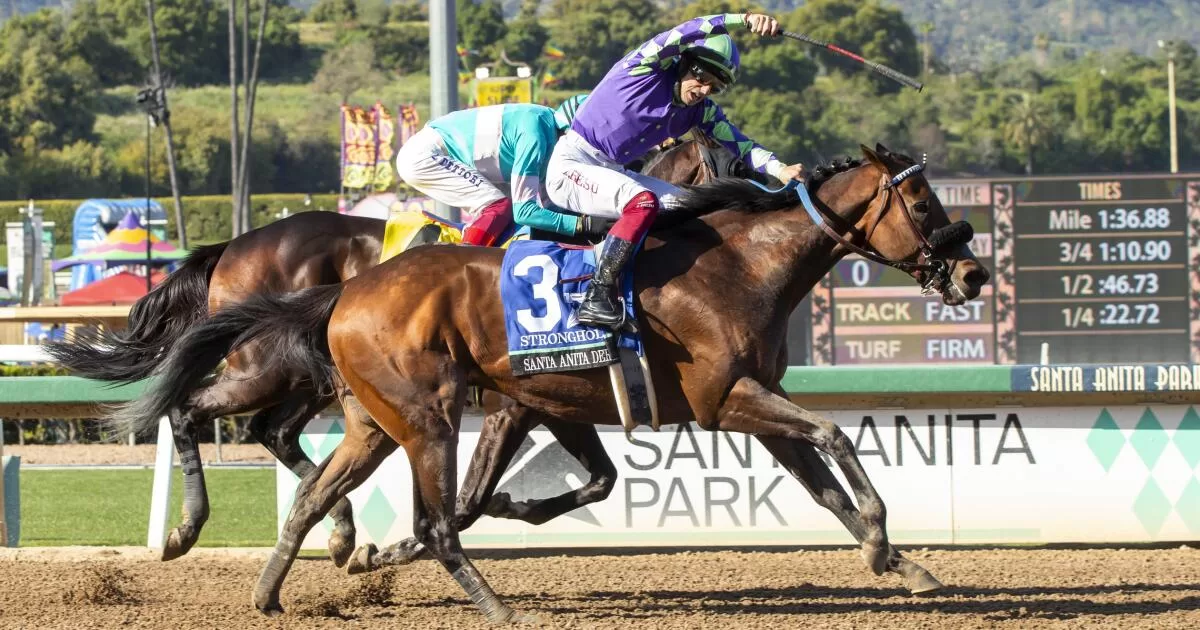They are expensive to buy, expensive to maintain and your chance of turning a profit is not very good. Financial advisors view it as a “lifestyle investment,” in other words, paying for an experience.
But suppose there was a magical formula out there, one that only has to work a few times and the financial pain is turned into financial profit.
On Saturday, Imagination will go off as the second or third favorite in the $2 million Preakness Stakes, the second leg of racing’s Triple Crown. He was bought for $1.050 million by a syndicate of nine people or entities, almost the same group that won last year’s Preakness with National Treasure. Imagination has won $406,800, so a victory on Saturday would bring another $1.2 million.
Tom Ryan is the managing partner of SF Bloodstock, an arm of SF Racing, which is owned by George Soros. He’s the one in charge of coming up with the investors and a starting list of horses to consider buying, then circulates the notes for input and then turns it over to trainer Bob Baffert for final approval and buying the horses.
The budget is about $12 million to $15 million for about 22 to 24 horses. If you do the math, there are a lot of million-plus checks being written. Not all shares are equal.
“Some of our partners buy in just to race, other stay on to own stallions,” Ryan said. “Some people choose to stay in, others move on. It’s definitely an entertainment factor. Some people take the long view. The program is working well.”
The first time they tried this multi-entity approach was 2018 and they sent Baffert to the Keeneland yearling sale with about $9 million and he bought 17 colts.
What did it turn into? Ryan says because of confidentiality clauses in the syndicate he couldn’t reveal. But Baffert isn’t bound by those.
“That $9 million turned into $40 or $50 million,” Baffert said.
Out of those 17 horses, most of the money came from three of them. Hit three of 17 in the majors and you are out of a job. Hit three of 17 in racing and you’ve made some serious cash, mostly on the back end in breeding rights.
The three were Authentic, winner of the Kentucky Derby and Breeders’ Cup Classic and a $350,000 purchase; Eight Rings, winner of the Grade 1 American Pharoah and who cost $520,000 and Charlatan, a $700,000 purchase, who won four of five including two Garde 1s.
Ryan shakes off the idea there was a kind of special genius to coming up with this plan saying syndicate owning rights is very common in Australia and Japan. He also cited Triple Crown winner Justify as one of the first to show how an ownership group could be a way to make money while mitigating risk.
WinStar Farm, the China Horse Club and SF Racing were unequal partners in the breeding rights, with SF having the smallest investment of 15%. The deal was said to be done before Justify won the Preakness, but no one has publicly acknowledged it.
“Justify was a great example of spreading your investment over a pool of horses,” Ryan said. “He was the ultimate home run and we got to know Bob significantly better.”
According to Ryan, Baffert is the key to everything.
“We wanted to concentrate our horses in his program,” Ryan said. “We felt his structure gave us a great chance. California is a great place to train and prep horses. I called Bob and conceptualized my idea. He was fully on board. I wanted Bob to participate in the selection process. His ability to pick out young talent is greatly understated. Bob was fully on board.”
Ryan even went so far as to say as Baffert makes the final decision on which horses to buy and when they run.
“The experience he brings to a public auction is great,” Ryan said. “Bob is significantly better at it than anyone else. Nobody does a better job.”
Not all horses stay with Baffert. For example, Doppelganger, a $570,000 purchase, was moved to Brittney Russell after finishing fourth in the Los Alamitos Derby. He went on to win the Grade 1 Carter H. at Aqueduct. Messier, a $470,000 buy, was moved after a fourth in the San Pasqual. He recently won the Grade 1 Winchester at the Belmont meet at Aqueduct.
“Some horses are not competitive at certain places and we send them in various directions,” Ryan said. “It’s just a matter of moving them to other jurisdictions.”
The group’s success has also contributed to making buying a horse more expensive.
“Other groups are starting to do the same thing,” Baffert said. “Now they are all bidding against each other driving the price up.”
Ryan sees that side of success.
“We’ve brought the syndication model to life and that makes it very productive for other groups to organize the same way,” Ryan said. “It’s definitely more competitive at the upper end of the market. It’s what makes the industry. Would you rather buy at half price if it meant you had to sell at half price?”
The ownership group of Imagination is made up of Ryan, SF Racing (Gavin Murphy), Starlight Racing (Jack and Laurie Wolf), Madaket Stables (Sol Kumin), Stonestreet Racing (Barbara Banke), Waves Edge Capital (Gregg Slager), Dianne Bashor, Robert (Bat) Masterson and Catherine Donovan (Gavin Murphy’s wife).
Most are expected to be at Pimlico on Saturday. No worries, though — it’s a pretty big trophy presentation stand, should it be needed.
